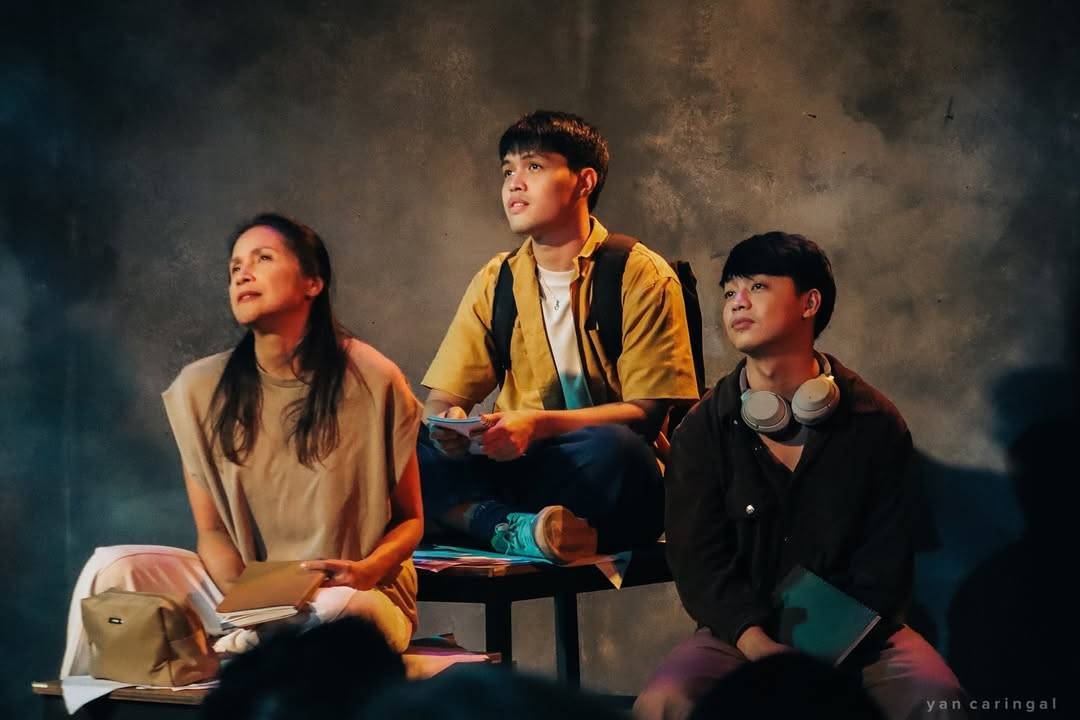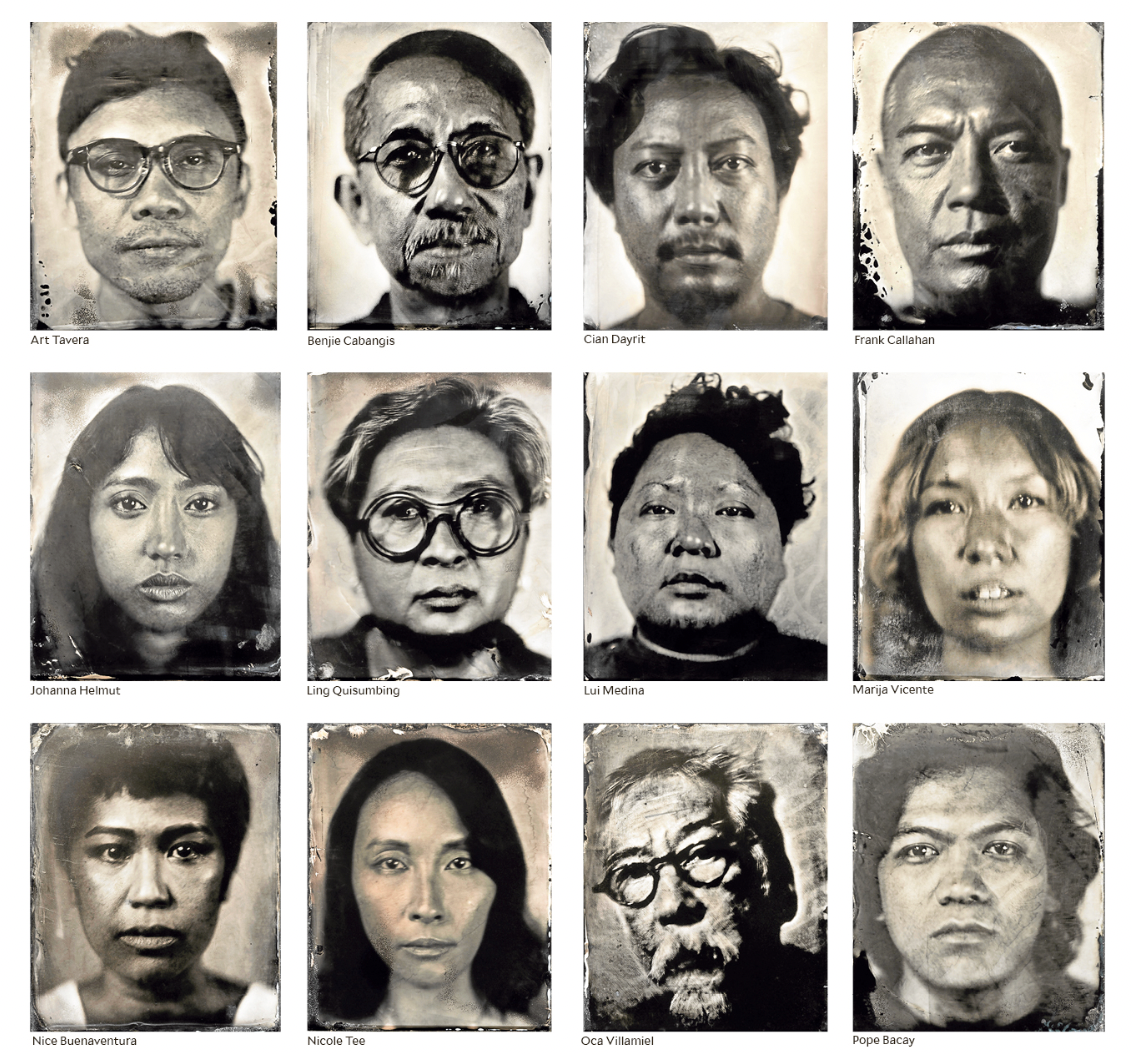The curtains are up for Scene Change

At the start of the year, I had the pleasure of watching several great local theater productions. Local theater, at least in Manila, has found itself in a sort of boom. A lot of shows are doing rather well—solid audience turnout and all—and the theater companies are rising to the demand, putting out strong productions that have the theater community excited about all the possibilities.
In all of my discussions with friends in the business, I have repeatedly been told to catch Guelan Valera-Luarca’s show “3 Upuan,” produced by his new theater company Scene Change. I kept seeing it on my social media, but never got a chance to catch it.
Luckily, I was invited to see their second show, an adaptation of Giancarlo Abrahan’s film “Dagitab,” also written and directed by Valera-Luarca, and I was blown away by the complexity of its writing and its staging. The show was equally successful.
When “3 Upuan” was restaged, with a new cast—Paolo O’Hara, Jasmine Curtis-Smith, and Chris Pasturan—I promised myself not to miss it. I was once again blown away by the sheer immensity of its narrative scope. With both shows, Scene Change has made a big impact in its debut. I messaged Valera-Luarca and asked him to tell me their story.
“Just rambling”
Scene Change was born when Valera-Luarca was processing his grief over the passing of theater veteran and sociologist Ricky Abad. He had been studying in New York with Giancarlo Abrahan, and they had plans of putting a company together.
When Valera-Luarca returned home, he got to talking with actors Jojit Lorenzo and JC Santos, and this inspired him to start writing “3 Upuan.” He knew he wanted to add a woman to the piece and invited Martha Comia to join, and the original cast of “3 Upuan” had been formed. Valera-Luarca wrote just the first segment of the play with the two brothers, who were passing the time at the hospital while their father was in the ICU, and he didn’t know where he was going with it.
He was, in his words, “just rambling” while writing, and it grew into the spectacular play I got to see later on. Yes, this was the beginning of the play, but it was also the beginning of a new theater company that had a massive first season.
The play was initially staged in a dressing room in Arete, “and D [Cortezano] helped me out because he’s the guy in Arete,” Valera-Luarca says. Later, when Abrahan visited, he gave notes, and after the success of that first run, everything just fell into place for them. “Baka eto na nga,” he adds. “This is the theater company we have all individually wanted to make.”
So Scene Change was born with Guelan Valera-Luarca, Giancarlo Abrahan, Jojit Lorenzo, JC Santos, Martha Comia, and D Cortezano, whom Valera-Luarca jokes, “is the only one who was forced to join.”

Filling up the blank spots
While the local theater renaissance is in full swing, most of the plays are musicals, so in my opinion, Scene Change has come out strong by creating original Filipino full-length straight plays, which are somewhat missing in the current landscape. CAST is doing great work with new adaptations of older plays, but in English. The Virgin Labfest is continually developing fantastic new work, but for one-act plays. Scene Change, though, is filling up the blank spots.
“It’s deliberate,” Luarca-Valera says. He admits that musicals are “an insecurity of mine because I don’t sing. I love it. I love musicals, but musicals are not my theater background.” But while his partners in the company do have musical backgrounds, Luarca-Valera said that they “were conscious of the number of musicals” and wanted to answer the “hunger for straight plays.”
He then adds that Scene Change, when they talked about their vision and mission, has “an unofficial motto”—that is, “we zig when zagging is the easy way. So if everyone is zagging with musicals, then we zig with straight plays. But when the time comes, when people do straight plays, baka we will do musicals. Parang ganon.”
Why Scene Change?
The answer then makes me curious about the name they’ve chosen for their company. “Why Scene Change?” I ask.
“Because it can be read as a sort of statement, like you’re changing the scene,” Luarca-Valera responds, “As a director, I love transitions. When I teach directing class and I’m teaching how to direct a full-length play, I always have this thing where if filmmaking is essentially editing, then directing full-length plays is essentially knowing how to transition. So scene changes are like the secret sauce to coming up with a great full-length play. That’s how I learned from Ron Capinding and Ricky Abad, and watching Dexter Santos directing Floy Quintos’ straight plays.”
Valera-Luarca then takes a pause, building momentum to finish with: “I guess it’s bold, almost at the edge of yabang. Maybe this little scrappy company can introduce a new mode of playwriting and a new mode of play-making to the audience that will hopefully, maybe in three or five or 10 years, create a few ripples of change in terms of taste or aesthetic or offer an alternative.”
He then offers the production of “Dagitab” as an “exercise of slowness” and “presents characters that are not exactly relatable.”
More creative liberties
Now that Valera-Luarca is no longer the artistic director of Tanghalan Ateneo, I ask him if co-running his own theater company now gives him more freedom to work on new material. “There’s definitely freedom,” he says. “Nothing can beat the joy of working with students. My time with Tanghalan Ateneo was one of my most productive, most joyful experiences, but, admittedly, in Tanghalan Ateneo, the focus was not on the artist, but it was on the students.”
“It was really pedagogical,” he continues. “You create the season around them, for them. These are kids that you develop their skills and after four years, they’ll be gone. You then go back to step one with new kids. So it has its limitations, but it also has its strengths.”
He agrees that it’s freeing to run his own company, but he also shares that it is also challenging because now he has to think of the business side of the company, like paying his actors and artistic team. He adds that one of the goals of Scene Change is to be competitive in paying talent fees, “so the small fledgling team that we have is compensated quite well, and that’s a challenge, but, yeah, in designing a season, mas malaya kami.”
So what can we expect from the new season of Scene Change next year? Luarca-Valera is tight-lipped about what is to come. He tries to think of hints, but we laugh because I picked up on it immediately and will choose to wait for them to make their announcement on their terms.
He did mention, however, that there will be a team-up with another theater company in January, a Filipino translation of a work by a foreign playwright, and some exciting collaborations with some exciting names in theater. What he does say with certainty is that the ultimate dream for Scene Change is to “be able to create a pipeline for development of new works.”
“Virgin Labfest does great work for the development of one-act plays, but there’s no scaffolding for full-length work,” Luarca-Valera ends. “So we want to be able to contribute to that. So we’re going to guinea pig a development process, and that will be one of our main goals for next season.

















